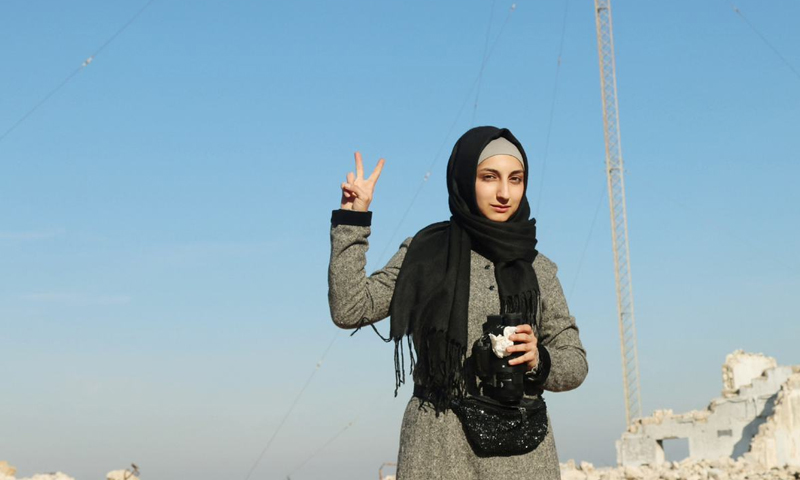
Syrian female journalists facing their bitter reality in Idlib

Enab Baladi – Zainab Masry
“I am fine, thank you for your support, which means the world to me,” with these words, Mirna al-Hassan, a journalist working in Idlib province, denied the rumors of her assault by four members of the Syrian National Army (SNA). The rumors circulated after Faris al-Shihabi, a member of the Syrian People’s Council, posted it on his official Twitter account, and later the rumors were shared by pro-Syrian regime’s social media pages.
Al-Hassan started her journalistic work secretly in written and broadcast media outlets with the beginning of the Syrian revolution through coordination groups of young people residing in different Syrian provinces with very humble capabilities.
In 2015, she started to work publicly in the audio-visual media, as she chose the profession of journalism to “be the voice of the most vulnerable and most affected groups in the Syrian war, namely women and children,” as she told Enab Baladi.
She came under lots of “insults, humiliations and threatening messages” during her previous work, whether from the surrounding community or regime loyalists. Nonetheless, al-Hassan turned the “insults” into a “force,” proving herself in her work; that is why she did not make declarations about such a treatment.
“Since I chose this profession, I knew that the road is difficult, long, and full of obstacles. Journalism is a difficult profession for men, and it is even harder for women, especially in a conservative society,” she said.
The young journalist took the recent campaign she was subjected to with “an open heart” as she put it. She said she did not expect the “tremendous amount” of encouragement, love, and solidarity messages from the near and far surrounding community and countries around the world.
She added that the campaign had not affected her personally in a negative way. However, it reflected one of the difficulties which female journalists and media workers are facing in Idlib.
Al-Hassan feels proud that “she can deliver a message to loyalists and the world, that she can work in a place described by loyalists as a hotspot for terrorists and militants.”
Humiliating acts
In a press statement, Reporters without Borders organization has condemned the campaign against al-Hassan, describing it as “degrading, and cannot be justified under the pretext of media polarization with connection to the conflict.”
The Syrian Journalists Association also condemned what al-Hassan has been subjected to, through a statement on its official website, noting that these are unethical practices of pure hate by loyalists to the Syrian regime.
Communications director of The Institute for War and Peace Reporting (IWPR), journalist Zina Erhim, has joined those who condemned the campaign. She said that what happened was a masculine-biased smear campaign based on the sensitive issue of honor of al-Hassan’s society.
Erhim added that the campaign is not intended to argue with the content al-Hassan provides, but it is instead a “personalized” endeavor to push her to quit her work in the media.
Erhim described the personalized smear campaigns against female journalists and activists, to Enab Baladi, explaining that they are “very dangerous,” due to the physical dangers that a female journalist could face, in addition to the “moral assassination” that may lead many females to leave journalistic work and retreat from public activity.
Meanwhile, al-Hassan cannot prosecute those responsible for this campaign in Syria in light of the unavailability of laws protecting press freedom, and the absence of administrative procedures for laws protecting journalists in Syria.
Difficulties encountered by female journalists
Female journalists and media workers in Idlib are facing many difficulties, most prominent of which are the customs and traditions that were challenged by the Idlib-based journalist, Salwa Abdel Rahman, who started her journalistic work in 2015.
Abdel Rahman told Enab Baladi that her first debut in front of the camera was not “disturbing” to the surrounding community, but rather a break to the customs’ chain. She said her family was supportive despite their fear that the regime would target her directly.
She also added that female journalists always fear being arrested; they are in constant worry about security forces’ frequent questions about them.” However, she said that she had overcome her fears.
Abdel Rahman is trying as much as possible to balance between her work and her house. She expressed that the media is a “large sea,” however, it does not require to know all the details, but it is essential to “take a certain path” in media and be professional in doing so.
She said that she does not face difficulties at the professional level because “the field offers a platform for learning,” and she is always learning.
Moreover, Abdel Rahman is studying English literature after she finished her studies in the media institute. She wants to deliver her voice to the world in English, during her journalistic work. She believes that the media is “important to serve the weak and highlight important issues such as corruption” rather than merely being a profession.
The journalist said that there are different levels of difficulties encountered by active female journalists in northern Syria, most notably is when a female journalist has to reveal her face in front of the camera, especially if she is young and single.
Female journalists’ clothing, movements, limited mobility, and with whom they work are “all under scrutiny,” and any error or what considered to be a mistake by the opposition factions made by the journalist” can put her life and her professional career at possible risk.
According to what Reporters without Borders quoted from the Syrian Center for Media and Freedom of Expression (SCM), there are 60 female journalists in Idlib province as Syria is ranked 174 out of 180 countries in the World Press Freedom Index of 2019.
The challenges are not limited to the customs and traditions that were broken by many women journalists and media workers. Female journalists face several challenges such as insecurity, repeated shelling of opposition areas, direct targeting of journalists, and harassment by members of particular factions. Besides, logistical matters such as power blackouts, poor internet services, and lack of equipment, are also obstacles that stand in their way.
The Syrian Center for Journalistic Freedoms (SCJF) documented in its 2019 annual report, the killing of 7 female journalists and 14 arrests out of a total of 35 violations against female workers in the field of journalism and media in Syria, since the beginning of the revolution in 2011 until last year. The center pointed out that the Syrian regime ranked first on the list of perpetrators of violations against female workers in media.
if you think the article contain wrong information or you have additional details Send Correction
النسخة العربية من المقال
-
Follow us :
Most viewed
- Printing Syrian currency in Europe... A file on the table
- Complex steps to establish new Syrian army
- National Security Council in Syria: A necessity imposed by reality
- SDF-Damascus agreement in Aleppo: A test balloon for broader consensus
- Al-Sharaa appoints Abdul Qader Hasriyeh as Governor of Central Bank

















 A
A
A
A
A
A



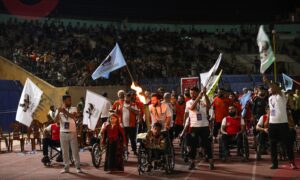
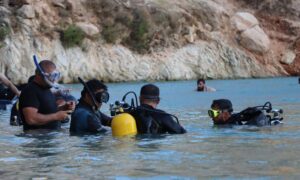
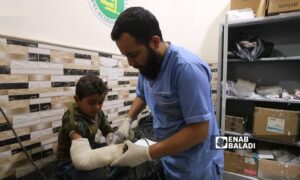
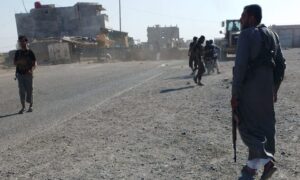
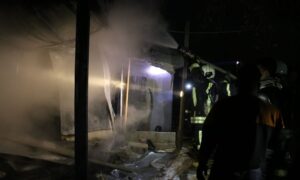
 More LC & CSO
More LC & CSO